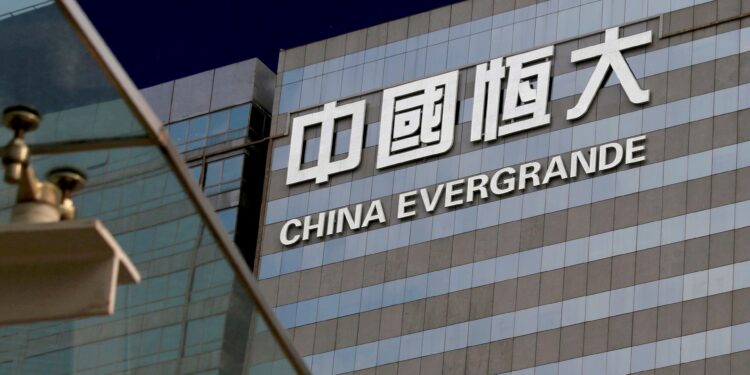In a historic decision with far-reaching implications, a court in Hong Kong ordered the liquidation of China Evergrande, the world’s most indebted real estate developer, representing a decisive chapter in China’s attempts to address the worsening crisis within its real estate sector.
China Evergrande, founded by Hui Ka Yan in the mid-1990s, has found itself embroiled in a financial quagmire, with liabilities exceeding $300 billion against $240 billion in assets.
The court’s decision, issued by Judge Linda Chan, comes after 19 months of failed attempts to restructure massive debt, raising concerns about China’s economic growth and the stability of its financial systems.
Judge Chan stressed the lack of progress in presenting a viable restructuring and insolvency proposal for Evergrande.
This comes in the wake of a series of collapses in the Chinese real estate market since 2020, as regulators sought to rein in spiraling debt, considering it a threat to the country’s economic trajectory.
The Associated Press quotes documents from the court, revealing that the company owes about $25.4 billion to foreign creditors, which places the company in the classification of “extremely insolvent and unable to pay its debts” according to the regulations.
The decision, which followed the arrest of Chairman Hui Ka Yan in late September on suspicion of “unlawful crimes,” has complicated the company’s recovery efforts.
Disturbed reactions
Evergrande shares traded in Hong Kong saw a significant decline of more than 21% early Monday before they were suspended from trading, while the Hang Seng Index in Hong Kong saw an increase of 0.9%, according to the Associated Press.
Real estate developers such as “Country Garden” and “Sunak China Holding” faced mixed reactions in their share prices to the impact of the decision, while market sources suggested that the direct market impact would be more noticeable for foreign investors.
But Brook Silvers, managing director at Kaiyuan Capital, told the Associated Press, “Tomorrow’s Evergrande will look exactly like yesterday’s Evergrande, and there won’t be much noticeable difference,” which indicates the complexity of China’s financial ecosystem through the fact that the liquidation order This is expected to have a more direct impact on foreign investors than on Evergrande’s mainland operations, explains Silvers.
Repercussions of the crisis and organizational challenges
As China struggles in the wake of Evergrande’s collapse, the real estate sector, which accounts for more than a quarter of total business activity in China, is facing ripple effects. The debt crisis has reverberated across various industries, from construction to raw materials, affecting economic growth and causing concerns among investors.
David Goodman, director of the Center for China Studies at the University of Sydney, told The Associated Press that regulatory intervention is needed not only for Evergrande, but also for other struggling property developers.
Goodman points out that restructuring will be a complex process, adding: “If the government could see simple answers to these problems, it would have reached them two to three years ago.”
Fergus Sorin, a lawyer representing a group of creditors, did not express surprise at the results of the liquidation, pointing to Evergrande’s failure to meaningfully engage in negotiations.
Global implications: A test for mainland China
As China navigates the aftermath of Evergrande’s liquidation, the global financial community will be watching the consequences closely. The case is seen as a test of the legal system in mainland China, where Hong Kong’s legal framework operates separately, albeit increasingly influenced by the mainland.
In a comprehensive analysis, Brook Silvers noted that the liquidation order is likely to affect foreign investors faster. The broader implications extend beyond the direct market impact, raising questions about China’s economic resilience and the government’s ability to address deep-rooted issues within the real estate sector.



